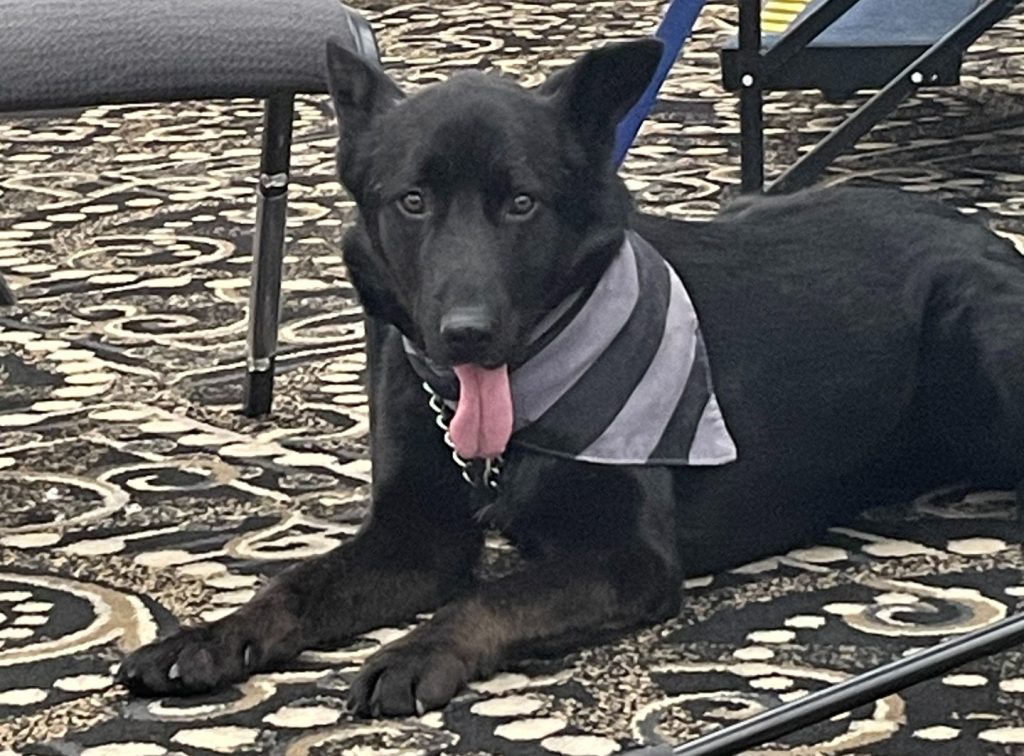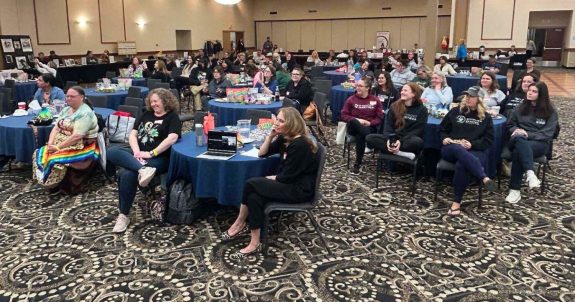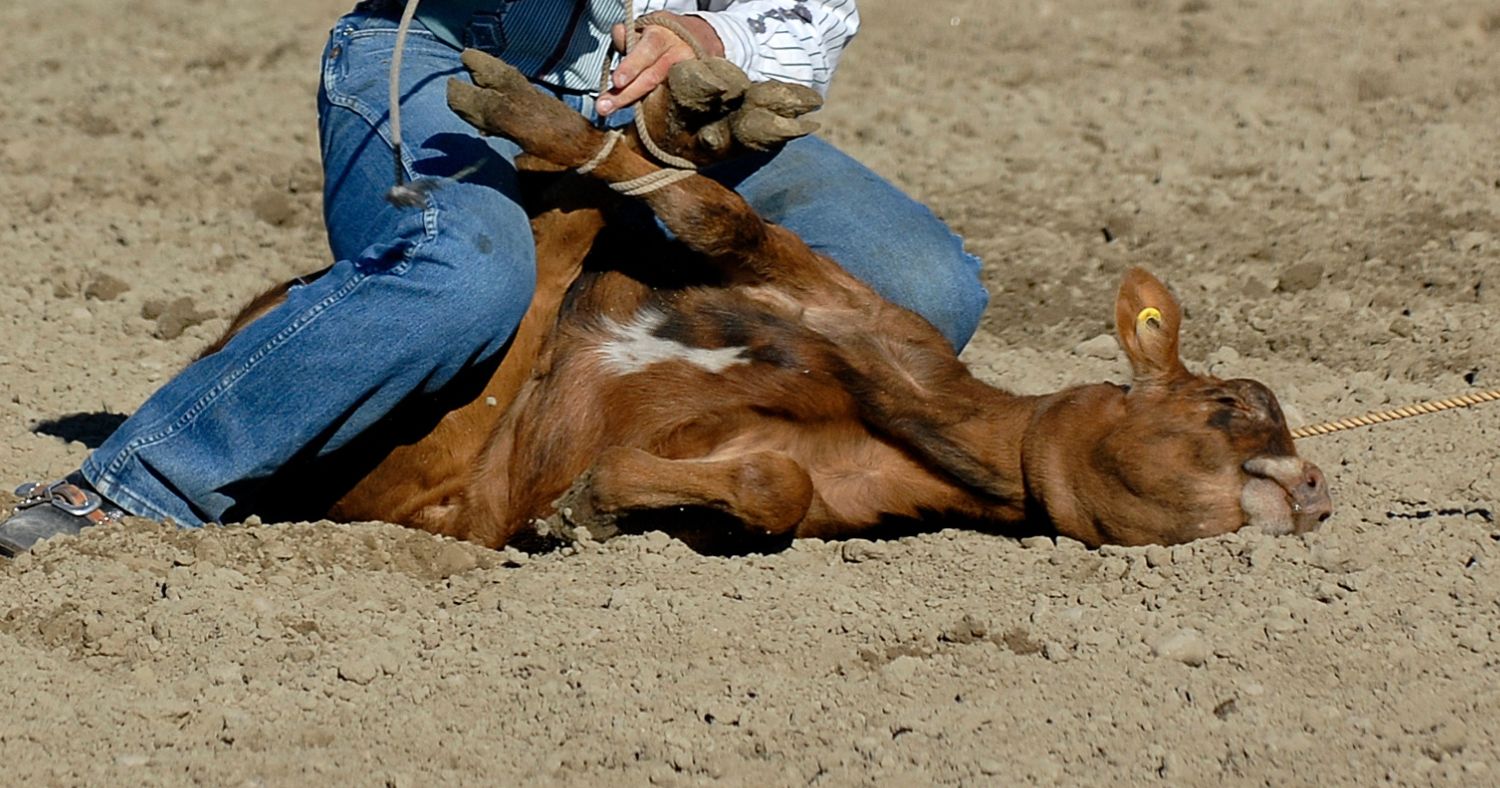More than 170 attendees gathered at Canada’s first ever conference focused on dogs in First Nations communities. Attendees from over 24 First Nations gathered for the Rez Dog Networking Conference on May 17–18 in Winnipeg. The group shared one goal: creating sustainable, community-led solutions to address the dog crisis in Manitoba and beyond.
Collaboration & Culture at the Heart of the Manitoba Dog Crisis Response
This two-day event was a powerful mix of collaboration and courage. Speakers led panels and conversations on topics ranging from public health, veterinary care, and animal first aid to lateral violence—a term used to describe harm within communities impacted by trauma. Presenters also addressed topics like legal advocacy, and wellness strategies in animal rescue. Smudging ceremonies led by Elders, along with traditional dances and cultural performances, created a space grounded in respect, connection, and community spirit.
Save A Dog Network Canada organized the event, with the Indigenous SPCA as a top sponsor and support from other community partners. The conference sparked critical conversations, thanks to the powerful insights shared by speakers and community leaders. It also helped build momentum to tackle dog overpopulation in Manitoba and beyond through community-led programs in Indigenous communities with the support of federal and provincial governments.
Kaitlyn Mitchell Represents Animal Justice in the Fight for Legal Solutions
Animal Justice proudly had Kaitlyn Mitchell, Director of Legal Advocacy, represent the organization at the Rez Dog Networking Conference. She led a session titled “Law as a Tool: Protecting Communities, Rescuers, and Rez Dogs,” where she spoke about how legal frameworks can help safeguard animals, support rescuers, and protect community well-being.
During her talk, Ms. Mitchell emphasized the importance of strengthening legal protections for animals at the provincial level in Manitoba and advancing sustainable, community-led solutions to address Manitoba’s dog overpopulation crisis. Her session also contributed to broader conversations at the conference about shifting away from punitive approaches and toward collaborative, long-term strategies.
In addition to presenting, Ms. Mitchell spent time connecting with frontline workers, community leaders, and rescuers to better understand the challenges they face. Ultimately, her presence reflected Animal Justice’s commitment to compassionate, community-driven, and legally supported efforts to address the ongoing dog welfare crisis in Manitoba.
Bear’s Story & the Urgency of the Manitoba Dog Crisis

One of many stories shared that moved the entire room was Bear’s story—dog from God’s Lake, Manitoba who survived unimaginable trauma.
In April 2024, Bear was found with his entire lower jaw missing. It’s believed he was shot in the face and left him to suffer for over a week.
Thankfully, compassionate community members intervened to save Bear’s life. When he arrived at Save A Dog Network Canada, Bear was in critical condition and weighed only 44 pounds. Through expert veterinary care and continued support, Bear not only pulled through—he thrived. After five months of recovery, he reached a healthy 63 pounds and was adopted into a loving home.
The conference highlighted Bear’s journey as a heartbreaking yet hopeful example of what dogs and community members endure—and what’s possible when we respond with compassion. His case is a powerful reminder of the urgent need to address the dog overpopulation crisis in Manitoba, as well as the lack of access to veterinary care in many northern and remote communities.
Indigenous-Led Solutions for Dog Welfare in Manitoba
A key theme throughout the conference was the importance of community-led approaches and the need to take measures that protect dogs as well as community health and safety. Speakers from multiple Nations shared success stories from their communities. These included dog management programs, public education campaigns, and partnerships with local rescues.
Notably, speakers like Danielle Peebles, Tanisha Ginther, and Dr. Melanie Youngs led thoughtful discussions that emphasized the importance of trauma-informed, culturally respectful partnerships in creating long-term solutions for Manitoba’s dog crisis.
Why Government Support Is Essential
Each year, thousands of dogs and puppies freeze to death in Manitoba’s harsh winters. Many others suffer from starvation, untreated injuries, vehicle strikes, and inhumane culls. This suffering isn’t just tragic—it also places people at risk.
In some First Nations communities, children are up to 180 times more likely to be attacked by dogs than those in cities. These incidents are preventable. They happen because of missing services: vet care, food access, spay/neuter clinics, and resources necessary to develop and enforce effective bylaws. To learn more about the root causes and scope of the crisis, read our full blog post on Manitoba’s dog overpopulation problem.
Consequently, the dog welfare crisis in Manitoba is both an animal welfare issue and a public health emergency. Compassionate community members, First Nations leaders, rescue groups, and veterinarians are doing incredible work. However, they cannot solve this alone. They need meaningful support from all levels of government.
Take Action: Sign the Petition to End the Manitoba Dog Crisis
The 2025 Rez Dog Networking Conference highlighted what’s needed most: long-term, community-first solutions backed by strong legal advocacy. Together, we can protect dogs like Bear—and stand with the communities leading the way to end the Manitoba dog crisis.
Banner: Save A Dog Network Canada




